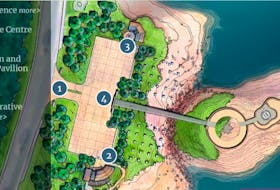I wish to respond to Mike Hinchey’s letter in your Sept. 22 edition (“MUN engineering needs less research, more design”), where he argued that Memorial University’s engineering faculty spends too much time, energy and money on research, and not enough on product design.
I agree wholeheartedly with Mr. Hinchey that as a society, we don’t spend nearly enough time, talent and energy on design. We are a “good-enough” society, satisfied to produce and export products to which others subsequently add value through additional manufacturing. I particularly like his suggestion of establishing a design culture at the graduate level. I would add that we need this culture in society generally.
Design incorporates a number of different processes. The first is the practical application of the product: does it do what it is supposed to do efficiently and consistently? A second is economic: how can efficiencies be created in the production process? A third is marketing: does the product meet a need in the market, and is it affordable? A fourth is environmental: what are the sources of the components and how can production waste be reduced? A fifth is ergonomic: how does the product feel to the human touch, or how does the human body fit into the product? A sixth is aesthetic: how does the product look? Does it stand out amid its competitors? And another is ethical: does the product have unintended impacts that harm people, such as suppliers, users or society at large?
In summary, design involves a number of different academic disciplines in addition to engineering, such as business, economics, ergonomics, environmental sciences, fine arts and ethics, among others. Innovation is rarely an individual sport; much more often than not, it is a team sport that requires a number of different skills that are not all taught in any one faculty or school.
And so, Mr. Hinchey is wrong to place the entire onus of design on engineering alone.
As well, while he and I agree on the objective, he arrives at it through a number of assumptions, all of which I strongly disagree with: That most research is useless. That we can’t afford the salaries of all the researchers in the engineering faculty. That design comes at the cost of research. That the relationship between a faculty researcher and a graduate student is one of master and slave. And that a design culture (within the university) cannot be established through professors.
If we are to diversify the economy of Newfoundland and Labrador, we need more research, not less. As a society, we need to move away from simply extracting natural resources and exporting them unprocessed. We need to examine our natural resources through the lens of biotechnology and life sciences, nanotechnology, artificial intelligence, robotics and other disciplines.
The vast majority of faculty members are dedicated, innovative and focused on solving real-world problems. And they are dedicated to mentoring their students so that they can be successful in the world. I agree with Mr. Hinchey that there are challenges in a number of areas, but it is not by demeaning research and researchers — in engineering or anywhere else — that the university will become more innovative.
Rather, what is required are more interdisciplinary collaborations, fewer barriers for those faculty members with an entrepreneurial ambition, and better connections with industry and community partners. Let’s mobilize faculty members, in engineering and in all faculties, to help diversify the economy of the province, through more and better research, and let’s help those entrepreneurs at the university — at all levels and in every discipline — bring their discoveries and inventions outside the university.
Michael Clair is the former Associate Director (Public Policy) at Memorial University’s Harris Centre. He writes from St. John’s









